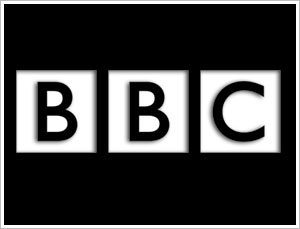Protests as British extremist leader wins BBC airtime
 London - A controversial BBC Television debate featuring the leader of the far-right, anti-immigration British National Party (BNP) went ahead late Thursday amid furious protests from anti- fascist groups.
London - A controversial BBC Television debate featuring the leader of the far-right, anti-immigration British National Party (BNP) went ahead late Thursday amid furious protests from anti- fascist groups.
Nick Griffin, the 50-year-old leader of the openly racist BNP, was jeered and booed by the audience as he appeared on BBC Question Time, the corporation's flagship political discussion programme.
"I'm not a Nazi, and I never have been," Griffin declared as he was being subjected to intense questioning over the party's anti- immigration stance.
During the discussion, Griffin said that Islam was "incompatible with Britain" and accused the "political elite" of imposing an "enormous multicultural experiment on the British people."
Griffin, who has in the past described Britain as a "multicultural hell hole," said that British people were being "shut out" in their own country. "It's time to shut the door," he said.
Weyman Bennett, representing the organization Unite Against Fascism, accused the BBC of "rolling out the red carpet" for the BNP and predicted that the party's popularity - as well as violence against ethnic minorities - would grow as a result.
However, Griffin insisted that he had led the BNP away from being a racist, anti-Jewish party. When asked why he had in the past described the Holocaust as a myth, he said: "I cannot explain why I said those things."
The first-ever appearance of a BNP leader on a mainstream TV talk show had earlier provoked furious protests by anti-fascist and anti- racist groups outside Television Centre, the headquarters of the BBC in West London.
Up to 1,000 protestors attempted to stop Griffin from entering the building, but he was brought in through a back entrance.
At one point, some 25 demonstrators broke through police barriers and entered the lobby of the building. They were evicted by police and security staff. Police said six people were arrested and three police officers were injured.
The BBC defended its decision to invite Griffin, saying that banning him would amount to "censorship" after the party won two seats to the European Parliament in June.
"The case against inviting the BNP to appear on Question Time is a case for censorship," BBC Director General Mark Thompson said. "Censorship cannot be outsourced to the BBC or anyone else."
It was up to the government to ban political parties, he said.
Critics said they feared that Griffin's participation in the programme could boost his party's appeal, as happened in the 1980s in France with Jean-Marie Le Pen's rightwing National Front party.
"Once you treat them as equal amongst the others, they gain ground. We saw that in Nazi Germany," said Peter Hain, a government minister and veteran anti-apartheid campaigner.
British Justice Secretary Jack Straw, who was one of the panellists on the programme, accused the BNP of having "no moral compass."
"The Nazis didn't, and I'm afraid nor does the BNP," Straw said.
Ahead of the screening, Griffin told BNP supporters that his appearance on the political discussion programme presented an "unprecedented chance" to present their views to the British public.
"I will, no doubt, be interrupted, shouted down, slandered, put on the spot, and subjected to a scrutiny that would be a thousand times more intense than anything directed at other panellists," Griffin wrote.
"It will, in other words, be political blood sport. But I am relishing this opportunity."
One questioner suggested that the BNP leader should consider settling on the South Pole where "the colourless landscape will suit you."
Other participants on the programme were US playwright Bonnie Greer - seated beside Griffin - as well as British Liberal Democrat Chris Huhne and Sayeeda Warsi, a Pakistani-born spokeswoman for community cohesion for the opposition Conservative Party.
Warsi said later that Griffin's "face of extremism" had been exposed by the programme.
"This man's was very much exposed for the man that he is. This is a person who comes from a fascist background," she said. "Anyone who watches the programme will see exactly what he stands for."
Huhne said that Griffin's credibility had been seriously damaged by his performance.
"It is the age-old issue of attempting to build up support for a party by attacking a minority, and I think we got that across," said Huhne.
The BNP, whose forerunner was the National Front, has an openly racist platform.
Griffin has publicly denied the Holocaust and, in 2004, described Islam as a "wicked, vicious faith." Two years later, he was cleared of inciting racial hatred with his remark. (dpa)